Fleurs du Mal Magazine


Or see the index
The Great Bear
by Leo Tolstoy
A long, long time ago there was a big drought on the earth. All the rivers dried up and the streams and wells, and the trees withered and the bushes and grass, and men and beasts died of thirst.
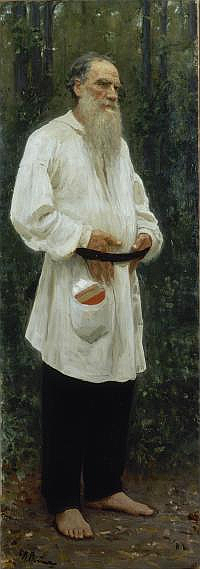 One night a little girl went out with a pitcher to find some water for her sick mother. She wandered and wandered everywhere, but could find no water, and she grew so tired that she lay down on the grass and fell asleep. When she awoke and took up the pitcher she nearly upset the water it contained. The pitcher was full of clear, fresh water. The little girl was glad and was about to put it to her lips, but she remembered her mother and ran home with the pitcher as fast as she could. She hurried so much that she did not notice a little dog in her path; she stumbled over it and dropped the pitcher. The dog whined pitifully; the little girl seized the pitcher.
One night a little girl went out with a pitcher to find some water for her sick mother. She wandered and wandered everywhere, but could find no water, and she grew so tired that she lay down on the grass and fell asleep. When she awoke and took up the pitcher she nearly upset the water it contained. The pitcher was full of clear, fresh water. The little girl was glad and was about to put it to her lips, but she remembered her mother and ran home with the pitcher as fast as she could. She hurried so much that she did not notice a little dog in her path; she stumbled over it and dropped the pitcher. The dog whined pitifully; the little girl seized the pitcher.
She thought the water would have been upset, but the pitcher stood upright and the water was there as before. She poured a little into the palm of her hand and the dog lapped it and was comforted. When the little girl again took up the pitcher, it had turned from common wood to silver. She took the pitcher home and gave it to her mother.
The mother said, “I shall die just the same; you had better drink it,” and she handed the pitcher to the child. In that moment the pitcher turned from silver to gold. The little girl could no longer contain
herself and was about to put the pitcher to her lips, when the door opened and a stranger entered who begged for a drink. The little girl swallowed her saliva and gave the pitcher to him.
And suddenly seven large diamonds sprang out of the pitcher and a stream of clear, fresh water flowed from it. And the seven diamonds began to rise, and they rose higher and higher till they reached the sky and became the Great Bear.
Short Stories
The Great Bear by Leo Lolstoy (1828-1910)
From: Tolstoi for the young. Select tales from Tolstoi
Translator: R. S. Townsend (1916)
• fleursdumal.nl magazine
More in: #Short Stories Archive, Archive S-T, Tolstoy, Leo
God Sees the Truth, But Waits
by Leo Tolstoy
In the town of Vladimir lived a young merchant named Ivan Dmitrich Aksionov. He had two shops and a house of his own.
Aksionov was a handsome, fair-haired, curly-headed fellow, full of fun, and very fond of singing. When quite a young man he had been given to drink, and was riotous when he had had too much; but after he married he gave up drinking, except now and then.
One summer Aksionov was going to the Nizhny Fair, and as he bade good-bye to his family, his wife said to him, “Ivan Dmitrich, do not start to-day; I have had a bad dream about you.”
Aksionov laughed, and said, “You are afraid that when I get to the fair I shall go on a spree.”
 His wife replied: “I do not know what I am afraid of; all I know is that I had a bad dream. I dreamt you returned from the town, and when you took off your cap I saw that your hair was quite grey.”
His wife replied: “I do not know what I am afraid of; all I know is that I had a bad dream. I dreamt you returned from the town, and when you took off your cap I saw that your hair was quite grey.”
Aksionov laughed. “That’s a lucky sign,” said he. “See if I don’t sell out all my goods, and bring you some presents from the fair.”
So he said good-bye to his family, and drove away.
When he had travelled half-way, he met a merchant whom he knew, and they put up at the same inn for the night. They had some tea together, and then went to bed in adjoining rooms.
It was not Aksionov’s habit to sleep late, and, wishing to travel while it was still cool, he aroused his driver before dawn, and told him to put in the horses.
Then he made his way across to the landlord of the inn (who lived in a cottage at the back), paid his bill, and continued his journey.
When he had gone about twenty-five miles, he stopped for the horses to be fed. Aksionov rested awhile in the passage of the inn, then he stepped out into the porch, and, ordering a samovar to be heated, got out his guitar and began to play.
Suddenly a troika drove up with tinkling bells and an official alighted, followed by two soldiers. He came to Aksionov and began to question him, asking him who he was and whence he came. Aksionov answered him fully, and said, “Won’t you have some tea with me?” But the official went on cross-questioning him and asking him. “Where did you spend last night? Were you alone, or with a fellow-merchant? Did you see the other merchant this morning? Why did you leave the inn before dawn?”
Aksionov wondered why he was asked all these questions, but he described all that had happened, and then added, “Why do you cross-question me as if I were a thief or a robber? I am travelling on business of my own, and there is no need to question me.”
Then the official, calling the soldiers, said, “I am the police-officer of this district, and I question you because the merchant with whom you spent last night has been found with his throat cut. We must search your things.”
They entered the house. The soldiers and the police-officer unstrapped Aksionov’s luggage and searched it. Suddenly the officer drew a knife out of a bag, crying, “Whose knife is this?”
Aksionov looked, and seeing a blood-stained knife taken from his bag, he was frightened.
“How is it there is blood on this knife?”
Aksionov tried to answer, but could hardly utter a word, and only stammered: “I–don’t know–not mine.” Then the police-officer said: “This morning the merchant was found in bed with his throat cut. You are the only person who could have done it. The house was locked from inside, and no one else was there. Here is this blood-stained knife in your bag and your face and manner betray you! Tell me how you killed him, and how much money you stole?”
Aksionov swore he had not done it; that he had not seen the merchant after they had had tea together; that he had no money except eight thousand rubles of his own, and that the knife was not his. But his voice was broken, his face pale, and he trembled with fear as though he went guilty.
The police-officer ordered the soldiers to bind Aksionov and to put him in the cart. As they tied his feet together and flung him into the cart, Aksionov crossed himself and wept. His money and goods were taken from him, and he was sent to the nearest town and imprisoned there. Enquiries as to his character were made in Vladimir. The merchants and other inhabitants of that town said that in former days he used to drink and waste his time, but that he was a good man. Then the trial came on: he was charged with murdering a merchant from Ryazan, and robbing him of twenty thousand rubles.
His wife was in despair, and did not know what to believe. Her children were all quite small; one was a baby at her breast. Taking them all with her, she went to the town where her husband was in jail. At first she was not allowed to see him; but after much begging, she obtained permission from the officials, and was taken to him. When she saw her husband in prison-dress and in chains, shut up with thieves and criminals, she fell down, and did not come to her senses for a long time. Then she drew her children to her, and sat down near him. She told him of things at home, and asked about what had happened to him. He told her all, and she asked, “What can we do now?”
“We must petition the Czar not to let an innocent man perish.”
His wife told him that she had sent a petition to the Czar, but it had not been accepted.
Aksionov did not reply, but only looked downcast.
Then his wife said, “It was not for nothing I dreamt your hair had turned grey. You remember? You should not have started that day.” And passing her fingers through his hair, she said: “Vanya dearest, tell your wife the truth; was it not you who did it?”
“So you, too, suspect me!” said Aksionov, and, hiding his face in his hands, he began to weep. Then a soldier came to say that the wife and children must go away; and Aksionov said good-bye to his family for the last time.
When they were gone, Aksionov recalled what had been said, and when he remembered that his wife also had suspected him, he said to himself, “It seems that only God can know the truth; it is to Him alone we must appeal, and from Him alone expect mercy.”
And Aksionov wrote no more petitions; gave up all hope, and only prayed to God.
Aksionov was condemned to be flogged and sent to the mines. So he was flogged with a knot, and when the wounds made by the knot were healed, he was driven to Siberia with other convicts.
For twenty-six years Aksionov lived as a convict in Siberia. His hair turned white as snow, and his beard grew long, thin, and grey. All his mirth went; he stooped; he walked slowly, spoke little, and never laughed, but he often prayed.
In prison Aksionov learnt to make boots, and earned a little money, with which he bought The Lives of the Saints. He read this book when there was light enough in the prison; and on Sundays in the prison-church he read the lessons and sang in the choir; for his voice was still good.
The prison authorities liked Aksionov for his meekness, and his fellow-prisoners respected him: they called him “Grandfather,” and “The Saint.” When they wanted to petition the prison authorities about anything, they always made Aksionov their spokesman, and when there were quarrels among the prisoners they came to him to put things right, and to judge the matter.
No news reached Aksionov from his home, and he did not even know if his wife and children were still alive.
One day a fresh gang of convicts came to the prison. In the evening the old prisoners collected round the new ones and asked them what towns or villages they came from, and what they were sentenced for. Among the rest Aksionov sat down near the newcomers, and listened with downcast air to what was said.
One of the new convicts, a tall, strong man of sixty, with a closely-cropped grey beard, was telling the others what be had been arrested for.
“Well, friends,” he said, “I only took a horse that was tied to a sledge, and I was arrested and accused of stealing. I said I had only taken it to get home quicker, and had then let it go; besides, the driver was a personal friend of mine. So I said, ‘It’s all right.’ ‘No,’ said they, ‘you stole it.’ But how or where I stole it they could not say. I once really did something wrong, and ought by rights to have come here long ago, but that time I was not found out. Now I have been sent here for nothing at all… Eh, but it’s lies I’m telling you; I’ve been to Siberia before, but I did not stay long.”
“Where are you from?” asked some one.
“From Vladimir. My family are of that town. My name is Makar, and they also call me Semyonich.”
Aksionov raised his head and said: “Tell me, Semyonich, do you know anything of the merchants Aksionov of Vladimir? Are they still alive?”
“Know them? Of course I do. The Aksionovs are rich, though their father is in Siberia: a sinner like ourselves, it seems! As for you, Gran’dad, how did you come here?”
Aksionov did not like to speak of his misfortune. He only sighed, and said, “For my sins I have been in prison these twenty-six years.”
“What sins?” asked Makar Semyonich.
But Aksionov only said, “Well, well–I must have deserved it!” He would have said no more, but his companions told the newcomers how Aksionov came to be in Siberia; how some one had killed a merchant, and had put the knife among Aksionov’s things, and Aksionov had been unjustly condemned.
When Makar Semyonich heard this, he looked at Aksionov, slapped his own knee, and exclaimed, “Well, this is wonderful! Really wonderful! But how old you’ve grown, Gran’dad!”
The others asked him why he was so surprised, and where he had seen Aksionov before; but Makar Semyonich did not reply. He only said: “It’s wonderful that we should meet here, lads!”
These words made Aksionov wonder whether this man knew who had killed the merchant; so he said, “Perhaps, Semyonich, you have heard of that affair, or maybe you’ve seen me before?”
“How could I help hearing? The world’s full of rumours. But it’s a long time ago, and I’ve forgotten what I heard.”
“Perhaps you heard who killed the merchant?” asked Aksionov.
Makar Semyonich laughed, and replied: “It must have been him in whose bag the knife was found! If some one else hid the knife there, ‘He’s not a thief till he’s caught,’ as the saying is. How could any one put a knife into your bag while it was under your head? It would surely have woke you up.”
When Aksionov heard these words, he felt sure this was the man who had killed the merchant. He rose and went away. All that night Aksionov lay awake. He felt terribly unhappy, and all sorts of images rose in his mind. There was the image of his wife as she was when he parted from her to go to the fair. He saw her as if she were present; her face and her eyes rose before him; he heard her speak and laugh. Then he saw his children, quite little, as they: were at that time: one with a little cloak on, another at his mother’s breast. And then he remembered himself as he used to be-young and merry. He remembered how he sat playing the guitar in the porch of the inn where he was arrested, and how free from care he had been. He saw, in his mind, the place where he was flogged, the executioner, and the people standing around; the chains, the convicts, all the twenty-six years of his prison life, and his premature old age. The thought of it all made him so wretched that he was ready to kill himself.
“And it’s all that villain’s doing!” thought Aksionov. And his anger was so great against Makar Semyonich that he longed for vengeance, even if he himself should perish for it. He kept repeating prayers all night, but could get no peace. During the day he did not go near Makar Semyonich, nor even look at him.
A fortnight passed in this way. Aksionov could not sleep at night, and was so miserable that he did not know what to do.
One night as he was walking about the prison he noticed some earth that came rolling out from under one of the shelves on which the prisoners slept. He stopped to see what it was. Suddenly Makar Semyonich crept out from under the shelf, and looked up at Aksionov with frightened face. Aksionov tried to pass without looking at him, but Makar seized his hand and told him that he had dug a hole under the wall, getting rid of the earth by putting it into his high-boots, and emptying it out every day on the road when the prisoners were driven to their work.
“Just you keep quiet, old man, and you shall get out too. If you blab, they’ll flog the life out of me, but I will kill you first.”
Aksionov trembled with anger as he looked at his enemy. He drew his hand away, saying, “I have no wish to escape, and you have no need to kill me; you killed me long ago! As to telling of you–I may do so or not, as God shall direct.”
Next day, when the convicts were led out to work, the convoy soldiers noticed that one or other of the prisoners emptied some earth out of his boots. The prison was searched and the tunnel found. The Governor came and questioned all the prisoners to find out who had dug the hole. They all denied any knowledge of it. Those who knew would not betray Makar Semyonich, knowing he would be flogged almost to death. At last the Governor turned to Aksionov whom he knew to be a just man, and said:
“You are a truthful old man; tell me, before God, who dug the hole?”
Makar Semyonich stood as if he were quite unconcerned, looking at the Governor and not so much as glancing at Aksionov. Aksionov’s lips and hands trembled, and for a long time he could not utter a word. He thought, “Why should I screen him who ruined my life? Let him pay for what I have suffered. But if I tell, they will probably flog the life out of him, and maybe I suspect him wrongly. And, after all, what good would it be to me?”
“Well, old man,” repeated the Governor, “tell me the truth: who has been digging under the wall?”
Aksionov glanced at Makar Semyonich, and said, “I cannot say, your honour. It is not God’s will that I should tell! Do what you like with me; I am your hands.”
However much the Governor! tried, Aksionov would say no more, and so the matter had to be left.
That night, when Aksionov was lying on his bed and just beginning to doze, some one came quietly and sat down on his bed. He peered through the darkness and recognised Makar.
“What more do you want of me?” asked Aksionov. “Why have you come here?”
Makar Semyonich was silent. So Aksionov sat up and said, “What do you want? Go away, or I will call the guard!”
Makar Semyonich bent close over Aksionov, and whispered, “Ivan Dmitrich, forgive me!”
“What for?” asked Aksionov.
“It was I who killed the merchant and hid the knife among your things. I meant to kill you too, but I heard a noise outside, so I hid the knife in your bag and escaped out of the window.”
Aksionov was silent, and did not know what to say. Makar Semyonich slid off the bed-shelf and knelt upon the ground. “Ivan Dmitrich,” said he, “forgive me! For the love of God, forgive me! I will confess that it was I who killed the merchant, and you will be released and can go to your home.”
“It is easy for you to talk,” said Aksionov, “but I have suffered for you these twenty-six years. Where could I go to now?… My wife is dead, and my children have forgotten me. I have nowhere to go…”
Makar Semyonich did not rise, but beat his head on the floor. “Ivan Dmitrich, forgive me!” he cried. “When they flogged me with the knot it was not so hard to bear as it is to see you now … yet you had pity on me, and did not tell. For Christ’s sake forgive me, wretch that I am!” And he began to sob.
When Aksionov heard him sobbing he, too, began to weep. “God will forgive you!” said he. “Maybe I am a hundred times worse than you.” And at these words his heart grew light, and the longing for home left him. He no longer had any desire to leave the prison, but only hoped for his last hour to come.
In spite of what Aksionov had said, Makar Semyonich confessed, his guilt. But when the order for his release came, Aksionov was already dead.
Leo Tolstoy (1828-1910) short stories
• fleursdumal.nl magazine
More in: #Short Stories Archive, Archive S-T, Archive S-T, Tolstoy, Leo
Geluksvogels bevat een keuze uit Luigi Pirandello’s Novellen voor een jaar, in een blinkend nieuwe vertaling van Yond Boeke en Patty Krone.
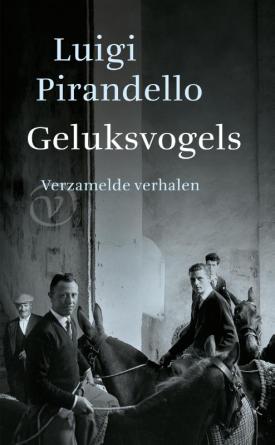 Pirandello schreef deze opmerkelijk hoogwaardige verzameling verhalen tussen 1894 en 1936. Zijn dood belette hem het project – één novelle voor elke dag van het jaar – te voltooien.
Pirandello schreef deze opmerkelijk hoogwaardige verzameling verhalen tussen 1894 en 1936. Zijn dood belette hem het project – één novelle voor elke dag van het jaar – te voltooien.
De diversiteit van zijn verhalen, die getuigen van groot psychologisch inzicht, een buitengewoon scherp gevoel voor humor en immens mededogen, is exemplarisch voor Pirandello’s enorme veelzijdigheid als schrijver.
Hij voert een breed scala aan markante personages ten tonele: van arme Siciliaanse boeren die tevergeefs strijden tegen de clerus tot wufte stedelingen die verstrikt raken in hun eigen overspel, van een wanhopige patiënt die in een New Yorks ziekenhuis uit het raam springt tot een geëxalteerde actrice die het moet opnemen tegen een vleermuis.
Pirandello laveert virtuoos tussen vlotte dialogen, van weemoed doortrokken landschapsbeschrijvingen en filosofische bespiegelingen over het aardse bestaan. Sommige verhalen blijken ook nu nog verrassend actueel.
Luigi Pirandello (1867-1936), geboren in een gegoede familie op Sicilië, kreeg in 1934 de Nobelprijs voor de Literatuur. De verfilming van zijn verhalen door Paolo en Vittorio Taviani, Kaos, werd wereldberoemd.
Geluksvogels
Novellen
Door Luigi Pirandello
Uitgeverij Van Oorschot
2022
Gebonden
832 pagina’s
ISBN 9789028213142
Prijs: € 45,00
• fleursdumal.nl magazine
More in: - Book News, Archive O-P, Luigi Pirandello, Pirandello, Luigi
A veritable crime lover’s delight from a true master of mystery and suspense. Experience the #1 New York Times best-selling author as never before in this dark and thrilling short story collection that takes us on a journey of twisted minds and vengeful hearts.
 Jo Nesbø is known the world over as a consummate mystery/thriller writer. Famed for his deft characterization, hair-raising suspense and shocking twists, Nesbø’s dexterity with the dark corners of the human heart is on full display in these inventive and enthralling stories.
Jo Nesbø is known the world over as a consummate mystery/thriller writer. Famed for his deft characterization, hair-raising suspense and shocking twists, Nesbø’s dexterity with the dark corners of the human heart is on full display in these inventive and enthralling stories.
A detective with a nose for jealousy is on the trail of a man suspected of murdering his twin; a bereaved father must decide whether vengeance has a place in the new world order after a pandemic brings about the collapse of society; a garbage man fresh off a bender tries to piece together what happened the night before; a hired assassin matches wits against his greatest adversary in a dangerous game for survival; and an instantly electric connection between passengers on a flight to London may spell romance, or something more sinister.
With Nesbø’s characteristic gift for outstanding atmosphere and gut-wrenching revelations, The Jealousy Man confirms that he is at the peak of his abilities.
Jo Nesbo is one of the world’s bestselling crime writers, with The Leopard, Phantom, Police, The Son and his latest Harry Hole novel, The Thirst, all topping the Sunday Times bestseller charts. He’s an international number one bestseller and his books are published in 50 languages, selling over 33 million copies around the world. Before becoming a crime writer, Nesbo played football for Norway’s premier league team Molde, but his dream of playing professionally for Spurs was dashed when he tore ligaments in his knee at the age of eighteen. After three years military service he attended business school and formed the band Di derre (‘Them There’). They topped the charts in Norway, but Nesbo continued working as a financial analyst, crunching numbers during the day and gigging at night. When commissioned by a publisher to write a memoir about life on the road with his band, he instead came up with the plot for his first Harry Hole crime novel, The Bat.
The Jealousy Man and Other Stories
by Jo Nesbo (Author)
Translator: Robert Ferguson
Publisher: Knopf; First Edition
(October 5, 2021)
Language: English
Hardcover
528 pages
ISBN-10: 0593321006
ISBN-13: 978-0593321003
$16.99
• fleursdumal.nl magazine
More in: #Short Stories Archive, - Book News, Archive M-N, Jo Nesbo, Thrillers
Ton van Reen schreef onder meer romans, kinder- en jeugdboeken en journalistiek werk.
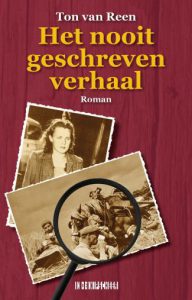 Bekend zijn de romans Het winterjaar, Roomse meisjes en Concert voor de Führer. Gestolen jeugd is het ware verhaal van jongens en mannen die aan het eind van de Tweede Wereldoorlog als dwangarbeiders naar Duitsland werden gevoerd. De lichtverkoper werpt licht op een donker tijdperk in de geschiedenis van de kinderarbeid in de negentiende eeuw. De verdwenen stad is de werdegang van een advocaat. Dochters is het levensverhaal van een journalist in Afrika. Katapult is een verhaal over gewone mensen in roerig Amsterdam in de vorige eeuw. De bende van de bokkenrijders werd verfilmd tot een veelbekroonde tv-serie. In Frankrijk spelen zijn boeken Vlucht uit Montaillou, Bevroren dromen, Landverbeuren en In het spoor van de camisards.
Bekend zijn de romans Het winterjaar, Roomse meisjes en Concert voor de Führer. Gestolen jeugd is het ware verhaal van jongens en mannen die aan het eind van de Tweede Wereldoorlog als dwangarbeiders naar Duitsland werden gevoerd. De lichtverkoper werpt licht op een donker tijdperk in de geschiedenis van de kinderarbeid in de negentiende eeuw. De verdwenen stad is de werdegang van een advocaat. Dochters is het levensverhaal van een journalist in Afrika. Katapult is een verhaal over gewone mensen in roerig Amsterdam in de vorige eeuw. De bende van de bokkenrijders werd verfilmd tot een veelbekroonde tv-serie. In Frankrijk spelen zijn boeken Vlucht uit Montaillou, Bevroren dromen, Landverbeuren en In het spoor van de camisards.
Ton van Reen over het ontstaan van zijn nieuwe roman:
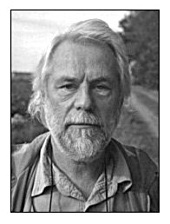 “Zestig jaar geleden werkte ik als leerling-verpleger in Psychiatrisch Ziekenhuis Ursula in Wassenaar. Drie avonden in de week bezocht ik de avond-HBS in Den Haag. Bij thuiskomst kwam ik vaak, op eigen verzoek, in de nachtdienst terecht.
“Zestig jaar geleden werkte ik als leerling-verpleger in Psychiatrisch Ziekenhuis Ursula in Wassenaar. Drie avonden in de week bezocht ik de avond-HBS in Den Haag. Bij thuiskomst kwam ik vaak, op eigen verzoek, in de nachtdienst terecht.
Vaak had ik lange gesprekken met patiënten die slecht sliepen. Er was een man die mij het verhaal vertelde over een misdaad die hij niet had begaan maar waarvoor hij de schuld op zich had genomen. Uit liefde. Daarna belandde hij lange jaren in de gevangenis.
Zijn verhaal bleef mijn leven lang in mijn hoofd hangen. Ik wilde het ooit opschrijven. Het kwam er nooit van.
Het drama had zich afgespeeld in een kloosterdorp, in Brabant of Limburg, zoals Velp bij Grave, of Steijl bij Tegelen. Tot ik opeens besefte dat er ook zo’n dorp met een psychiatrische inrichting bij mij in de buurt lag. Koningslust, een kerkdorp van de gemeente Helden waar zich een deel van mijn jeugd had afgespeeld. Een dorp dat mede ontstaan was door het klooster dat er in 1849 was gesticht door de Broeders van Sint Joseph.
Alles viel op zijn plek. Ik had een handvat om het verhaal waarvan ik alleen de kern kende, op te schrijven. Het verhaal had ik zestig jaar geleden gehoord en het speelde zestig jaar eerder, rond 1900. Ik besloot het in deze tijd te plaatsen. Het is immers een verhaal van alle tijden. De kern, over de man die zich opoffert uit liefde, blijft.”
Ton van Reen
Het nooit geschreven verhaal
Roman
Vormgeving omslag Carmen Arends
Gebrocheerd in omslag
240 blz.
Uitgeverij In de Knipscheer
ISBN 978-94-93214-68-2
Eerste uitgave maart 2022
€ 19,50
• fleursdumal.nl magazine
More in: - Book News, - Bookstores, Archive Q-R, Archive Q-R, Psychiatric hospitals, Reen, Ton van, Reen, Ton van, Ton van Reen
Geluksvogels bevat een keuze uit Luigi Pirandello’s Novellen voor een jaar, in een blinkend nieuwe vertaling van Yond Boeke en Patty Krone.
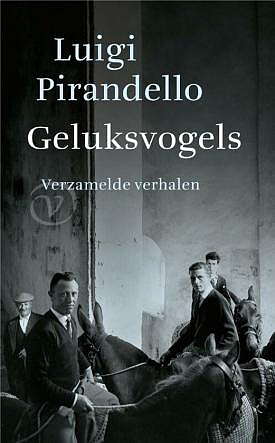 Pirandello schreef deze opmerkelijk hoogwaardige verzameling verhalen tussen 1894 en 1936. Zijn dood belette hem het project – één novelle voor elke dag van het jaar – te voltooien.
Pirandello schreef deze opmerkelijk hoogwaardige verzameling verhalen tussen 1894 en 1936. Zijn dood belette hem het project – één novelle voor elke dag van het jaar – te voltooien.
De diversiteit van zijn verhalen, die getuigen van groot psychologisch inzicht, een buitengewoon scherp gevoel voor humor en immens mededogen, is exemplarisch voor Pirandello’s enorme veelzijdigheid als schrijver.
Hij voert een breed scala aan markante personages ten tonele: van arme Siciliaanse boeren die tevergeefs strijden tegen de clerus tot wufte stedelingen die verstrikt raken in hun eigen overspel, van een wanhopige patiënt die in een New Yorks ziekenhuis uit het raam springt tot een geëxalteerde actrice die het moet opnemen tegen een vleermuis.
Pirandello laveert virtuoos tussen vlotte dialogen, van weemoed doortrokken landschapsbeschrijvingen en filosofische bespiegelingen over het aardse bestaan. Sommige verhalen blijken ook nu nog verrassend actueel.
Luigi Pirandello (1867-1936), geboren in een gegoede familie op Sicilië, kreeg in 1934 de Nobelprijs voor de Literatuur. De verfilming van zijn verhalen door Paolo en Vittorio Taviani, Kaos, werd wereldberoemd.
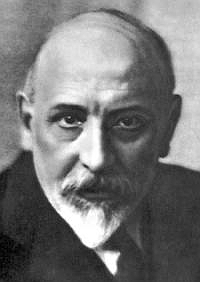 # new translations
# new translations
Geluksvogels Verzamelde verhalen
Auteur: Luigi Pirandello
Taal: Nederlands
Vertaald door Yond Boeke & Patty Krone
Hardcover
Druk: 1 februari 2022
832 pagina’s
ISBN 9789028213142
€ 45,00
• fleursdumal.nl magazine
More in: #Editors Choice Archiv, Archive O-P, Archive O-P, Pirandello, Luigi, Pirandello, Luigi
Joris-Karl Huysmans (1848-1907) wordt door velen tot de fine fleur van de Franse letteren gerekend. Zelf omschreef hij zich vaak als een ‘Parijse Hollander’.
 Met het hoofd in Frankrijk, met het hart in Nederland en met de pen in een spagaat werkte deze auteur aan een uitzonderlijk oeuvre, doorspekt met verwijzingen naar – en reflecties op – de Nederlandse cultuur, volksaard, schilderkunst en religie.
Met het hoofd in Frankrijk, met het hart in Nederland en met de pen in een spagaat werkte deze auteur aan een uitzonderlijk oeuvre, doorspekt met verwijzingen naar – en reflecties op – de Nederlandse cultuur, volksaard, schilderkunst en religie.
Dit boek brengt deze Hollandse kant van Huysmans in kaart. Aan de hand van zijn biografie (Huysmans en Nederland), zijn kritische onthaal in de literaire journalistiek (Huysmans in Nederland) en zijn thematiek (Nederland in Huysmans), wordt een rijk en verrassend beeld gevormd van deze sleutelfiguur uit het Franse fin-de-siècle.
Huysmans omschreef zichzelf graag als een ‘Parijse Hollander’. Met zijn ene been in het artistieke leven van de Franse hoofdstad en met zijn andere in de Brabantse klei, werkte deze auteur aan een uitzonderlijk oeuvre doorspekt met verwijzingen naar – en reflecties op – de Nederlandse cultuur, volksaard, schilderkunst en religie. Dit boek brengt deze Hollandse kant van Huysmans in kaart. Aan de hand van zijn biografie, zijn kritische onthaal in de literaire journalistiek en zijn thematiek, wordt een rijk en verrassend beeld gevormd van deze sleutelfiguur uit het fin-de-siècle. Charles-Georges Huijsmans. Joris-Karl Huysmans. Met het hoofd in Frankrijk, met het hart in Nederland, met de pen in een spagaat.
# new books
Joris-Karl Huysmans (1848-1907)
Een Parijse Hollander
Auteur: Marc Smeets
Taal: Nederlands
ISBN: 9789087049256
NUR codes: 654 , 647
Jaar van uitgave: 2021
Druk 1
Uitgeverij Verloren
Bindwijze: paperback
Aantal bladzijdes: 226
Met illustraties
€20,00
• fleursdumal.nl magazine
More in: - Book News, - Bookstores, Archive G-H, Archive S-T, Histoire de France, Huysmans, J.-K., Huysmans, Joris-Karl, Joris-Karl Huysmans
From the creator of UlyssesGuide.com, this essential guide to James Joyce’s masterpiece weaves together plot summaries, interpretive analyses, scholarly perspectives, and historical and biographical context to create an easy-to-read, entertaining, and thorough review of Ulysses.
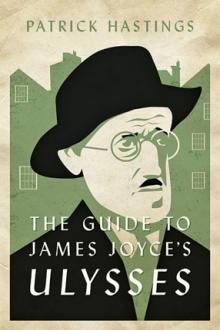 In The Guide to James Joyce’s Ulysses, Patrick Hastings provides comprehensive support to readers of Joyce’s magnum opus by illuminating crucial details and reveling in the mischievous genius of this unparalleled novel.
In The Guide to James Joyce’s Ulysses, Patrick Hastings provides comprehensive support to readers of Joyce’s magnum opus by illuminating crucial details and reveling in the mischievous genius of this unparalleled novel.
Written in a voice that offers encouragement and good humor, this guidebook maintains a closeness to the original text and supports the first-time reader of Ulysses with the information needed to successfully finish and appreciate the novel.
Patrick Hastings is the English Department Chair at Gilman School in Baltimore, Maryland, where he teaches sophomores and seniors and coaches the JV soccer team. He began creating UlyssesGuide.com in the summer of 2016, and that project evolved into The Guide to James Joyce’s Ulysses. His interest in Joyce began during the summer of 2003, when he lived and worked at Shakespeare & Company Bookstore in Paris. He has been published in James Joyce Quarterly and has presented at conferences on topics ranging from classroom use of digital humanities to hip hop and postmodernism. He grew up in Atlanta, Georgia.
# new books
The Guide to James Joyce’s Ulysses
by Patrick Hastings
Publisher: Johns Hopkins University Press
Publication date: 1 Feb 2022
Paperback
328 pages
Language : English
ISBN-10 : 142144349X
ISBN-13 : 978-1421443492
Reading age: 18 years and up
€ 26.00
• fleursdumal.nl magazine
More in: - Book News, - Bookstores, Archive G-H, Archive I-J, Archive I-J, Joyce, James, Joyce, James
Mary Shelley verblijft op haar veertiende bij een familie in Schotland, waar een innige vriendschap ontstaat met Isabella Baxter.
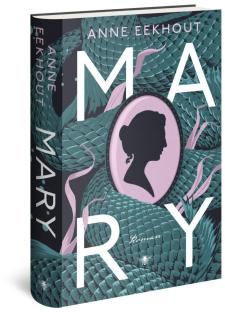 Samen dwalen ze in het gebied dat al eeuwen verhalen herbergt over monsters en geesten, en op een dag stuiten ze diep in het bos op een man die geen man is. De ledematen log en lelijk, een hoofd dat noch menselijk, noch dierlijk is.
Samen dwalen ze in het gebied dat al eeuwen verhalen herbergt over monsters en geesten, en op een dag stuiten ze diep in het bos op een man die geen man is. De ledematen log en lelijk, een hoofd dat noch menselijk, noch dierlijk is.
Vier jaar later brengt Mary met haar geliefde Percy Shelley een bezoek aan haar vrienden John Polidori en Lord Byron, bij het Meer van Genève. ’s Avonds bij het haardvuur vertellen ze elkaar verhalen. Een flintertje herinnering brengt haar terug naar haar tijd met Isabella in Schotland, en ook naar David Booth, een zeer intelligente, charismatische, maar tegelijk ook griezelige man, die een grote interesse in Mary en Isabella ontwikkelde. Dan dient ook het monster uit het bos zich weer aan, en vanuit die gedachte ontstaat haar verhaal over het monster van Frankenstein.
Mary is een ode aan de verbeelding, een verhaal over creëren, over de onlosmakelijke band tussen fantasie en werkelijkheid. En evenals Mary Shelley toont Anne Eekhout de kracht van een vrouw wanneer die iets ter wereld brengt wat niemand voor mogelijk had gehouden.
Anne Eekhout debuteerde in 2014 met de roman Dogma, die werd genomineerd voor de Bronzen Uil voor het beste debuut, op de longlist stond van de AKO Literatuurprijs en die wordt vertaald in het Duits. In 2016 verscheen Op een nacht (genomineerd voor de BNG Literatuurprijs) en in 2019 Nicolas en de verdwijning van de wereld, dat de prijs voor het Beste Boek voor Jongeren won. In november 2021 verschijnt de roman Mary waarin met verbluffende verbeeldingskracht de achttienjarige schepper van het meesterwerk Frankenstein tot leven wordt gewekt.
# new novel
Mary
Auteur: Anne Eekhout
Type: Gebonden
ISBN: 9789403153315
NUR: 301
Aantal pagina’s: 384
Uitgever: De Bezige Bij
Verschijningsdatum: 18-11-2021
Prijs: 24,99
• fleursdumal.nl magazine
More in: #Biography Archives, - Book News, - Bookstores, Archive E-F, Archive S-T, Byron, Byron, Lord, Keats, Keats, John, Mary Shelley, Percy Byssche Shelley, Shelley, Shelley, Mary, Shelley, Percy Byssche
Franz Kafka (1883-1924) groeide op in Praag, waar hij deel uitmaakte van de Duitstalige Joodse gemeenschap en aan de rand van het getto woonde.
Hij bezocht het Duitse gymnasium en studeerde aan de universiteit van Praag. Daar ontmoette hij Max Brod, zijn vriend en latere biograaf.
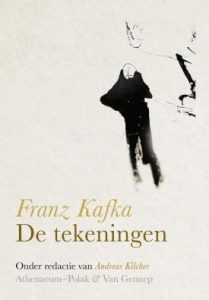 Vanaf 1908 tot 1917 werkte hij als ambtenaar bij een bedrijf dat arbeidsongevallenverzekeringen verzorgde, een baan die hij als een noodzakelijk kwaad beschouwde om zich aan het schrijven te kunnen wijden. Zijn longtuberculose, die hem in 1924 fataal zou worden, deed zich in deze tijd gelden. Gedurende zijn leven had hij enkele korte maar intense relaties, waaronder drie verlovingen, zo blijkt uit enkele postuum uitgegeven brieven. De dames waar hij mee omging komen ook indirect terug in zijn werk. Hij leidde een teruggetrokken leven, maar discussieerde veel binnen de Praagse culturele elite, mede via zijn ‘ontdekker’ Brod.
Vanaf 1908 tot 1917 werkte hij als ambtenaar bij een bedrijf dat arbeidsongevallenverzekeringen verzorgde, een baan die hij als een noodzakelijk kwaad beschouwde om zich aan het schrijven te kunnen wijden. Zijn longtuberculose, die hem in 1924 fataal zou worden, deed zich in deze tijd gelden. Gedurende zijn leven had hij enkele korte maar intense relaties, waaronder drie verlovingen, zo blijkt uit enkele postuum uitgegeven brieven. De dames waar hij mee omging komen ook indirect terug in zijn werk. Hij leidde een teruggetrokken leven, maar discussieerde veel binnen de Praagse culturele elite, mede via zijn ‘ontdekker’ Brod.
Een reconstructie van Kafka’s leven en denken is mogelijk geworden door zijn nalatenschap in de vorm van dagboeken, die hij van 1910 tot 1923 bijhield. Kafka schreef voornamelijk proza, waarvan zijn romans Der Prozess (1925), Das Schloss (1926) en Amerika (1927) de bekendste zijn. Enkele prozavertellingen als Die Verwandlung (1915), Das Urteil (1913) en In der Strafkolonie (1919) hebben later ook hun weg naar het grote publiek gevonden.
Wat Kafka’s werk typeert zijn tegenstellingen als weten en onwetendheid, macht en machteloosheid, loyaliteit en verraad, menselijkheid en verontmenselijking. Hij schetst labyrinten waarin individuen wanhopig naar een uitweg zoeken. De werelden die hij creëert zijn absurd, kennen een heel eigen logica en worden in een droge, zakelijke stijl beschreven. Veel van zijn werk is tijdens zijn leven onvoltooid gebleven, waardoor veel discussie mogelijk is over de bedoelingen van de schrijver. Pas in de jaren dertig van de twintigste eeuw groeide de belangstelling voor zijn werk, dat mede dankzij Max Brod postuum verscheen.
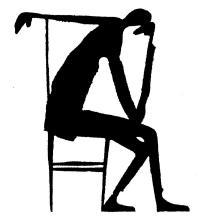 In 2019 werd het Max Brod Archief in de Nationale Bibliotheek van Israël geopend. Tussen de opvallende archiefstukken bevonden zich tot dusver onbekende tekeningen die Franz Kafka maakte in de jaren 1901-1906. Hij tekende, al voor de ontwikkeling van zijn literaire talent, om zich artistiek uit te drukken.
In 2019 werd het Max Brod Archief in de Nationale Bibliotheek van Israël geopend. Tussen de opvallende archiefstukken bevonden zich tot dusver onbekende tekeningen die Franz Kafka maakte in de jaren 1901-1906. Hij tekende, al voor de ontwikkeling van zijn literaire talent, om zich artistiek uit te drukken.
Aan zijn verloofde Felice Bauer schreef hij in 1913: ‘Weet je, ik was ooit een groot tekenaar, maar toen ben ik bij een slechte schilderes schoolse tekenlessen gaan nemen en heb ik mijn hele talent verknoeid. Stel je dat eens voor! […] In die tekeningen heb ik indertijd, het is nu al jaren geleden, meer bevrediging gevonden dan in enige andere bezigheid.’
In Franz Kafka. De tekeningen worden voor het eerst meer dan 200 tekeningen, waarvan 140 nooit eerder zijn gepubliceerd, in een luxe kunstuitgave samengebracht. Deze is samengesteld en van begeleidende essays en een verantwoording voorzien door Andreas Kilcher, Pavel Schmidt en Judith Butler.
Franz Kafka. De tekeningen
Auteur: Franz Kafka
Taal: Nederlands
Vertaald door Willem van Toorn
Uitgever Athenaeum
Hardcover
EAN 9789025313609
1 oktober 2021
336 pagina’s
Illustraties
49,90
# new books
Franz Kafka.
De tekeningen
• fleursdumal.nl magazine
More in: - Book News, - Bookstores, Archive K-L, Archive K-L, Art & Literature News, Franz Kafka, Illustrators, Illustration, Kafka, Franz, Kafka, Franz

Grabgesang
Vor des Friedhofs dunkler Pforte
Bleiben Leid und Schmerzen stehn,
Dringen nicht zum heil’gen Orte,
Wo die sel’gen Geister gehn,
Wo nach heißer Tage Glut
Unser Freund in Frieden ruht.
Zu des Himmels Wolkentoren
Schwang die Seele sich hinan,
Fern von Schmerzen, neu geboren,
Geht sie auf — die Sternenbahn;
Auch vor jenen heil’gen Höhn
Bleiben Leid und Schmerzen stehn.
Sehnsucht gießet ihre Zähren
Auf den Hügel, wo er ruht;
Doch ein Hauch aus jenen Sphären
Füllt das Herz mit neuem Mut;
Nicht zur Gruft hinab — hinan,
Aufwärts ging des Freundes Bahn.
Drum auf des Gesanges Schwingen
Steigen wir zu ihm empor,
Unsre Trauertöne dringen
Aufwärts zu der Sel’gen Chor,
Tragen ihm in stille Ruh’
Unsre letzten Grüße zu.
Wilhelm Hauff
(1802 – 1827)
Grabgesang, Gedicht
• fleursdumal.nl magazine
More in: Archive G-H, Archive G-H, Galerie des Morts, Hauff, Hauff, Wilhelm, Tales of Mystery & Imagination
Gevatter Tod
Es lebte einmal ein sehr armer Mann, hieß Klaus, dem hatte Gott eine Fülle Reichtum beschert, der ihm große Sorge machte, nämlich zwölf Kinder, und über ein kleines so kam noch ein Kleines, das war das dreizehnte Kind. Da wußte der arme Mann seiner Sorge keinen Rat, wo er doch einen Paten hernehmen sollte, denn seine ganze Sipp- und Magschaft hatte ihm schon Kinder aus der Taufe gehoben, und er durfte nicht hoffen, noch unter seinen Freunden eine mitleidige Seele zu finden, die ihm sein jüngstgebornes Kindlein hebe. Gedachte also an den ersten besten wildfremden Menschen sich zu wenden, zumal manche seiner Bekannten ihn in ähnlichen Fällen schon mit vieler Hartherzigkeit abschläglich beschieden hatten.
Der arme Kindesvater ging also auf die Landstraße hinaus, willens, dem ersten ihm Begegnenden die Patenstelle seines Kindleins anzutragen. Und siehe, ihm begegnete bald ein gar freundlicher Mann, stattlichen Aussehens, wohlgestaltet, nicht alt nicht jung, mild und gütig von Angesicht, und da kam es dem Armen vor, als neigten sich vor jenem Manne die Bäume und Blümlein und alle Gras- und Getreidehalme. Da dünkte dem Klaus, das müsse der liebe Gott sein, nahm seine schlechte Mütze ab, faltete die Hände und betete ein Vater Unser. Und es war auch der liebe Gott, der wußte, was Klaus wollte, ehe er noch bat, und sprach: »Du suchst einen Paten für dein Kindlein! Wohlan, ich will es dir heben, ich, der liebe Gott!«
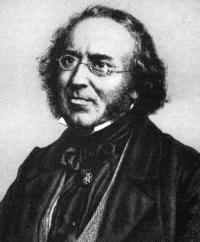 »Du bist allzugütig, lieber Gott!« antwortete Klaus verzagt. »Aber ich danke dir; du gibst denen, welche haben, einem Güter, dem andern Kinder, so fehlt es oft beiden am Besten, und der Reiche schwelgt, der Arme hungert!« Auf diese Rede wandte sich der Herr und ward nicht mehr gesehen. Klaus ging weiter, und wie er eine Strecke gegangen war, kam ein Kerl auf ihn zu, der sah nicht nur aus, wie der Teufel, sondern war’s auch, und fragte Klaus, wen er suche? – Er suche einen Paten für sein Kindlein. – »Ei da nimm mich, ich mach es reich!« – »Wer bist du!« fragte Klaus. »Ich bin der Teufel« – »Das wär der Teufel!« rief Klaus, und maß den Mann vom Horn bis zum Pferdefuß. Dann sagte er: »Mit Verlaub, geh heim zu dir und zu deiner Großmutter; dich mag ich nicht zum Gevatter, du bist der Allerböseste! Gott sei bei uns!«
»Du bist allzugütig, lieber Gott!« antwortete Klaus verzagt. »Aber ich danke dir; du gibst denen, welche haben, einem Güter, dem andern Kinder, so fehlt es oft beiden am Besten, und der Reiche schwelgt, der Arme hungert!« Auf diese Rede wandte sich der Herr und ward nicht mehr gesehen. Klaus ging weiter, und wie er eine Strecke gegangen war, kam ein Kerl auf ihn zu, der sah nicht nur aus, wie der Teufel, sondern war’s auch, und fragte Klaus, wen er suche? – Er suche einen Paten für sein Kindlein. – »Ei da nimm mich, ich mach es reich!« – »Wer bist du!« fragte Klaus. »Ich bin der Teufel« – »Das wär der Teufel!« rief Klaus, und maß den Mann vom Horn bis zum Pferdefuß. Dann sagte er: »Mit Verlaub, geh heim zu dir und zu deiner Großmutter; dich mag ich nicht zum Gevatter, du bist der Allerböseste! Gott sei bei uns!«
Da drehte sich der Teufel herum, zeigte dem Klaus eine abscheuliche Fratze, füllte die Luft mit Schwefelgestank und fuhr von dannen. Hierauf begegnete dem Kindesvater abermals ein Mann, der war spindeldürr, wie eine Hopfenstange, so dürr, daß er klapperte; der fragte auch: »Wen suchst du?« und bot sich zum Paten des Kindes an. »Wer bist du?« fragte Klaus. »Ich bin der Tod!« sprach jener mit ganz heiserer Summe. – Da war der Klaus zum Tod erschrocken, doch faßte er sich Mut, dachte: bei dem wär mein dreizehntes Söhnlein am besten aufgehoben, und sprach: »du bist der Rechte! Arm oder reich, du machst es gleich. Topp! Du sollst mein Gevattersmann sein! Stell dich nur ein zu rechter Zeit, am Sonntag soll die Taufe sein.«
Und am Sonntag kam richtig der Tod, und ward ein ordentlicher Dot, das ist Taufpat des Kleinen, und der Junge wuchs und gedieh ganz fröhlich. Als er nun zu den Jahren gekommen war, wo der Mensch etwas erlernen muß, daß er künftighin sein Brot erwerbe, kam zu der Zeit der Pate und hieß ihn mit sich gehen in einen finsteren Wald. Da standen allerlei Kräuter, und der Tod sprach: »Jetzt, mein Pat, sollt du dein Patengeschenk von mir empfahen. Du sollt ein Doktor über alle Doktoren werden durch das rechte wahre Heilkraut, das ich dir jetzt in die Hand gebe. Doch merke, was ich dir sage. Wenn man dich zu einem Kranken beruft, so wirst du meine Gestalt jedesmal erblicken.
Stehe ich zu Häupten des Kranken, so darfst du versichern, daß du ihn gesund machen wollest, und ihn von dem Kraute eingeben; wenn er aber Erde kauen muß, so stehe ich zu des Kranken Füßen; dann sage nur: Hier kann kein Arzt der Welt helfen und auch ich nicht. Und brauche ja nicht das Heilkraut gegen meinen mächtigen Willen, so würde es dir übel ergehen!«
 Damit ging der Tod von hinnen und der junge Mensch auf die Wanderung und es dauerte gar nicht lange, so ging der Ruf vor ihm her und der Ruhm, dieser sei der größte Arzt auf Erden, denn er sahe es gleich den Kranken an, ob sie leben oder sterben würden. Und so war es auch. Wenn dieser Arzt den Tod zu des Kranken Füßen erblickte, so seufzte er, und sprach ein Gebet für die Seele des Abscheidenden; erblickte er aber des Todes Gestalt zu Häupten, so gab er ihm einige Tropfen, die er aus dem Heilkraut preßte, und die Kranken genasen. Da mehrte sich sein Ruhm von Tage zu Tage.
Damit ging der Tod von hinnen und der junge Mensch auf die Wanderung und es dauerte gar nicht lange, so ging der Ruf vor ihm her und der Ruhm, dieser sei der größte Arzt auf Erden, denn er sahe es gleich den Kranken an, ob sie leben oder sterben würden. Und so war es auch. Wenn dieser Arzt den Tod zu des Kranken Füßen erblickte, so seufzte er, und sprach ein Gebet für die Seele des Abscheidenden; erblickte er aber des Todes Gestalt zu Häupten, so gab er ihm einige Tropfen, die er aus dem Heilkraut preßte, und die Kranken genasen. Da mehrte sich sein Ruhm von Tage zu Tage.
Nun geschah es, daß der Wunderarzt in ein Land kam, dessen König schwer erkrankt darnieder lag, und die Hofärzte gaben keine Hoffnung mehr seines Aufkommens. Weil aber die Könige am wenigsten gern sterben, so hoffte der alte König noch ein Wunder zu erleben, nämlich daß der Wunderdoktor ihn gesund mache, ließ diesen berufen und versprach ihm den höchsten Lohn. Der König hatte aber eine Tochter, die war so schön und so gut, wie ein Engel.
Als der Arzt in das Gemach des Königs kam, sah er zwei Gestalten an dessen Lager stehen, zu Häupten die schöne weinende Königstochter, und zu Füßen den kalten Tod. Und die Königstochter flehte ihn so rührend an, den geliebten Vater zu retten, aber die Gestalt des finstern Paten wich und wankte nicht. Da sann der Doktor auf eine List. Er ließ von raschen Dienern das Bette des Königs schnell umdrehen, und gab ihm geschwind einen Tropfen vom Heilkraut, also daß der Tod betrogen war, und der König gerettet. Der Tod wich erzürnt von hinnen, erhob aber drohend den langen knöchernen Zeigefinger gegen seinen Paten.
Dieser war in Liebe entbrannt gegen die reizende Königstochter, und sie schenkte ihm ihr Herz aus inniger Dankbarkeit. Aber bald darauf erkrankte sie schwer und heftig, und der König, der sie über alles liebte, ließ bekannt machen, welcher Arzt sie gesund mache, der solle ihr Gemahl und hernach König werden. Da flammte eine hohe Hoffnung durch des Jünglings Herz, und er eilte zu der Kranken – aber zu ihren Füßen stand der Tod. Vergebens warf der Arzt seinem Paten flehende Blicke zu, daß er seine Stelle verändern und ein wenig weiter hinauf, wo möglich bis zu Häupten der Kranken treten möge. Der Tod wich nicht von der Stelle, und die Kranke schien im Verscheiden, doch sah sie den Jüngling um ihr Leben flehend an. Da übte des Todes Pate noch einmal seine List, ließ das Lager der Königstochter schnell umdrehen, und gab ihr geschwind einige Tropfen vom Heilkraut, so daß sie wieder auflebte, und den Geliebten dankbar anlächelte. Aber der Tod warf seinen tödlichen Haß auf den Jüngling, faßte ihn an mit eiserner eiskalter Hand und führte ihn von dannen, in eine weite unterirdische Höhle. In der Höhle da brannten viele tausend Kerzen, große und halbgroße und kleine und ganz kleine; viele verloschen und andere entzündeten sich, und der Tod sprach zu seinem Paten: »Siehe, hier brennt eines jeden Menschen Lebenslicht; die großen sind den Kindern, die halbgroßen sind den Leuten, die in den besten Jahren stehen, die kleinen den Alten und Greisen, aber auch Kinder und Junge haben oft nur ein kleines bald verlöschendes Lebenslicht.«
»Zeige mir doch das meine!« bat der Arzt den Tod, da zeigte dieser auf ein ganz kleines Stümpchen, das bald zu erlöschen drohte. »Ach liebster Pate!« bat der Jüngling: »wolle mir es doch erneuen, damit ich meine schöne Braut, die Königstochter, freien, ihr Gemahl und König werden kann!« – »Das geht nicht« – versetzte kalt der Tod. »Erst muß eins ganz ausbrennen, ehe ein neues auf- und angesteckt wird.« –
»So setze doch gleich das alte auf ein neues!« sprach der Arzt – und der Tod sprach: »Ich will so tun!« Nahm ein langes Licht, tat als wollte er es aufstecken, versah es aber absichtlich und stieß das kleine um, daß es erlosch. In demselben Augenblick sank der Arzt um und war tot.
Ludwig Bechstein
(1801 – 1860)
Gevatter Tod
Sämtliche Märchen
• fleursdumal.nl magazine
More in: Archive A-B, Bechstein, Bechstein, Ludwig, Tales of Mystery & Imagination
Thank you for reading Fleurs du Mal - magazine for art & literature